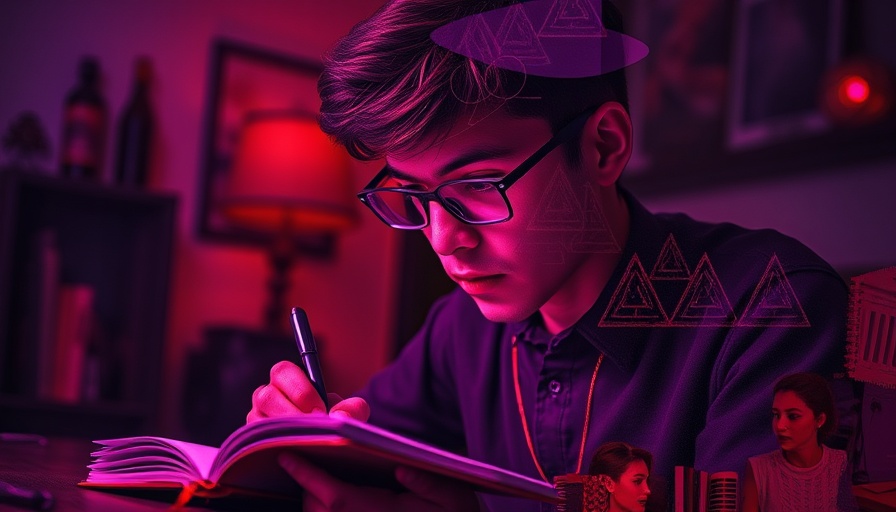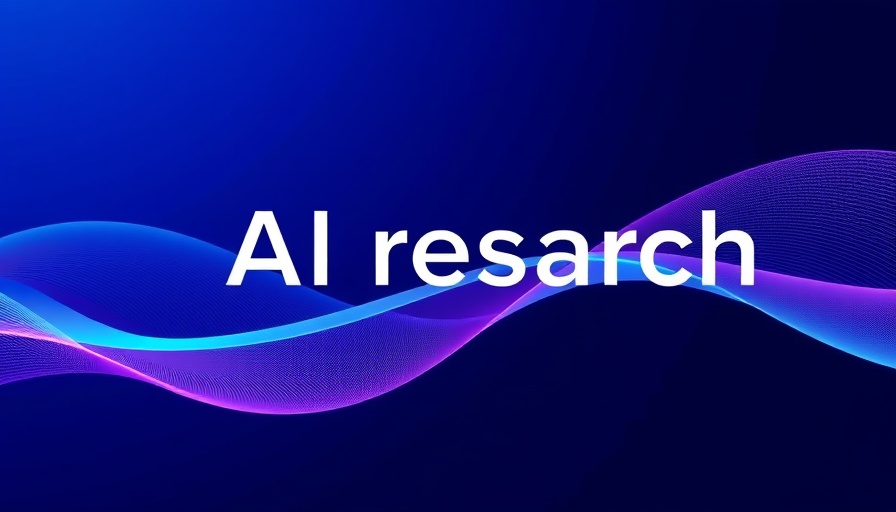
The Rise of #WritersTok: A New Frontier in Authorial Authenticity
As artificial intelligence continues to alter the landscape of authorship, many writers are turning to social media platforms to assert their human creative process. Known collectively as #WritersTok, this burgeoning movement on TikTok showcases authors like Victoria Aveyard, who are using video to provide transparency about their writing methods in the face of growing concerns over generative AI in literary creation.
Why Authors Are Fighting Back Against AI
The launch of generative AI tools has revolutionized content creation, but it has also sparked considerable backlash among professional writers. Notably, Aveyard has publicly criticized these technologies, claiming that they compromise the storytelling craft. In her TikToks, she communicates a powerful message: utilizing AI to craft a manuscript may technically produce text, but it crucially lacks the nuanced humanity that characterizes authentic writing.
Around the industry, authors express fears of being overshadowed by these AI-generated works. With many feeling their livelihoods and reputations in jeopardy, the drive towards fostering a supportive author community is vital. TikTok offers a unique platform for writers to engage with their audience and highlight their individual journeys.
Navigating a Changing Publishing Landscape
The publishing market is indeed expanding, projected to grow by $18.9 million by 2029, according to market research firm Technavio. While self-publishing has become increasingly accessible, this influx brings mixed results. Scams and low-quality content can flood the market, muddying the waters for readers seeking genuine literary experiences.
As skeptical comments reverberate through social media, many traditional and indie authors emphasize the importance of proving their human touch in an era where readers can be misled by flashy AI-generated content. By showcasing their writing processes through #WritersTok, they hope to create a deeper understanding of the labor involved in writing a book.
Harnessing Social Media for Authorial Transparency
The phenomenon of posting live streams and editing time-lapses is not just a creative expression; it serves a practical purpose: to reassure readers and publishers alike of the authenticity of their works. Aveyard's videos illustrate the meticulous process behind her 1,000-page drafts, highlighting the effort that goes into transforming ideas into final products.
In a fast-paced digital landscape, this approach resonates with the audience. It bridges the gap between authors and readers, fostering a connection grounded in mutual understanding and respect for the craft.
Future Trends: What Lies Ahead for Authors in the Age of AI
As AI technology evolves, authors must remain vigilant and adapt their strategies. This may involve a shift not just in how they write but also how they market their work. Transparency and authenticity may become crucial traits that readers actively seek out, reinforcing the human touch as a value that AI simply cannot replicate.
The growing concern over AI-generated content may propel further initiatives aimed at establishing authenticity standards in literary works. As authors continue to advocate for their craft through innovative platforms like TikTok, it is likely we will see increased collaboration and support among writers navigating these turbulent waters.
Conclusion: It’s Time to Engage
For CEOs and marketing managers, understanding the struggles of authors today can impart valuable insights into crafting more genuine engagement strategies within their industries. Social media has become an essential tool for engagement and storytelling. Just as authors are finding their voices amidst evolving technologies, businesses should seek meaningful ways to connect with audiences, embracing the narrative arc in their marketing.
Engage with the movement, explore these authors’ work, and consider how your own narrative can reflect authenticity in a world increasingly influenced by technology.
 Add Row
Add Row  Add
Add 




Write A Comment